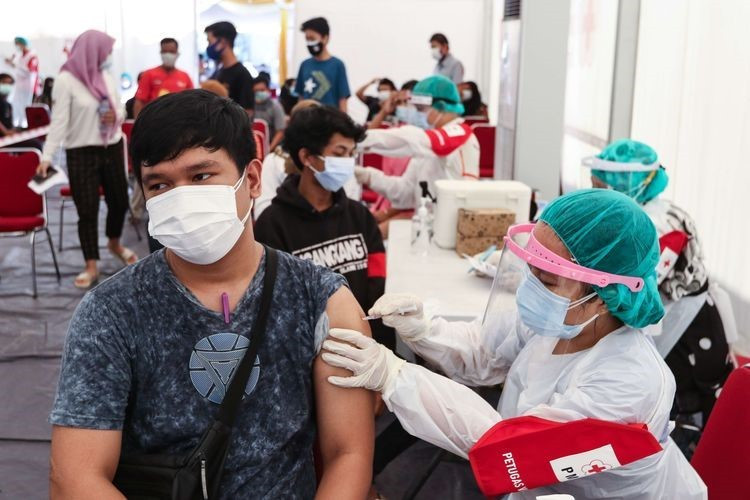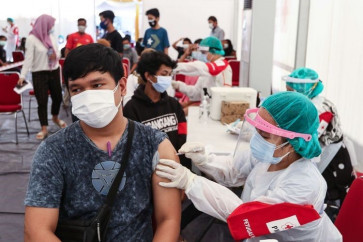Popular Reads
Top Results
Can't find what you're looking for?
View all search resultsPopular Reads
Top Results
Can't find what you're looking for?
View all search resultsThe future is now: Collaborative governance to achieve Indonesia’s ambitions
As digital and green economies increasingly become the norm, our human capital must be digitally literate and understand the interlinkages between economic, environmental and social concerns.
Change text size
Gift Premium Articles
to Anyone
L
ast month marked two years since the World Health Organization declared the COVID-19 pandemic. As countries pivot from reactionary mitigation to recovery policy actions, we must not forget to prepare for the future to come.
Before COVID-19, the world had already experienced a myriad of structural shifts, from Industry 4.0, the widening digital divide and climate pressures to the rise of the green economy, geo-economic tensions and the relocation of supply chains. Left unaddressed, these challenges could risk global recovery efforts and future longevity.
Governance must not return to business-as-usual, but rather chart a way forward that accounts for the now and future. This means two things.
First, addressing economic, environmental, social and technological concerns in an integrated manner. Second, a meaningful alliance of public, private and community groups working to transform minds, markets and policies. The key? Future-fit leaders working for collaborative governance, characterized by inclusion and innovation.
The World Economic Forum’s 2022 Global Risks Report reflected a turbulent global landscape, with 84 percent of respondents voicing “concern” or “worry” about the future. Planetary health was cited as the primary issue, in a similar vein to the Intergovernmental Panel on Climate Change’s Sixth Assessment Report. Outside planetary health, technological and geoeconomic risks were also highlighted.
While it is difficult to predict every possible future disruption, one thing is clear: The world has changed dramatically since before COVID-19. Economic, environmental and people's health and welfare risks are, and will increasingly be, inseparable.
Indonesia does not operate in a vacuum and is no exception to these global, systemic changes. Located in the Pacific Ring of Fire, Indonesia is inherently among the most natural disaster-vulnerable countries. But Indonesia is now seeing an uptick in such disasters. The National Disaster Management Agency (BNPB) recorded 3,035 disasters in 2021, compared to 2,925 in 2020. And this year, between January and March alone, the BNPB already recorded over 1,000 natural disasters.



















